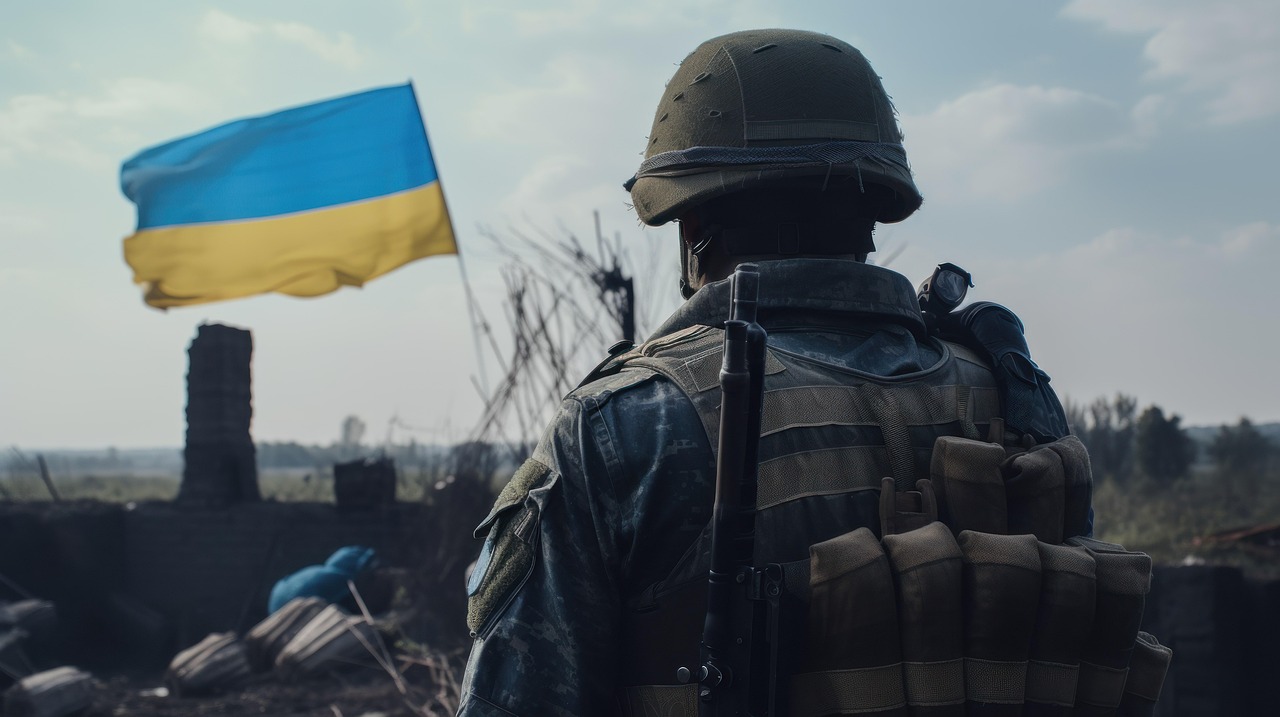The war is on the home stretch: 4 scenarios awaiting Ukraine
23 May 20:33
By the end of July, active hostilities will end in Ukraine. After that, the country is likely to repeat the fate of Georgia and, after several changes of government, will come under the influence of Russia, "Komersant Ukrainian" reports, citing analysts at the JPMorganChase Center for Geopolitics.
They predict that Ukrainian President Volodymyr Zelenskyy will probably be forced to accept an agreement with Russia that will freeze hostilities but will not lead to a comprehensive peace agreement.
At the current rate of advance, Russia will control all of Ukraine in about 118 years. Therefore, Putin will try to conclude a deal that will be favorable to his overall goal of eventually controlling Kyiv,” JPMorganChase notes.
What the future of Ukraine depends on
Experts at the Center for Geopolitics note that the durability of any settlement will depend on two factors.
The first is whether Russian President Vladimir Putin will be satisfied with the concessions made by Ukraine and the West and whether he will get enough of what he wants.
The second factor is the strength of the security promises that back him up. The question is whether they are sufficient to deter further aggression and allow Ukraine to rebuild with confidence.
These factors are in direct correlation: the weaker the security promises, the more concessions Ukraine will have to make – neutrality, demilitarization, disarmament, territory – or risk a return to hostilities.
How the war in Ukraine will end: four possible scenarios
Analysts at the JPMorganChase Center for Geopolitics currently see 4 possible variations, each of which has parallels with other countries.
“Georgian scenario”
This is the most likely scenario. According to analysts, its probability is 50%.
It is based on the fact that in the absence of both foreign troops and strong military support, Ukraine will face constant instability, slow growth and recovery, a decrease in foreign support over time, and the actual disruption of its Western integration (i.e., membership in the EU and NATO) with a gradual return to Russia’s orbit.
“Israeli scenario”
The probability that this scenario will come true is 20%.
Powerful, long-term military and economic support without a significant presence of foreign troops will probably still provide Ukraine with the space to turn itself into a fortress, carry out military modernization and, ultimately, create its own deterrent. But war will always be on the horizon. Putin will still need to obtain sufficient economic benefits (including sanctions relief) and strengthening of relations with the United States.
“South Korean scenario”
Analysts currently estimate the probability of this scenario for Ukraine at 15%.
This scenario implies that European troops may appear on Ukrainian soil, and the United States will provide intelligence and political guarantees in case the war resumes.
“Belarusian scenario”
The probability that this scenario will become the only possible model of further developments for Ukraine is also 15%.
If the United States abandons Ukraine, or if it is perceived as a switch to the other side and Europe fails to make a step forward, Russia will stand firm on its maximalist demands and seek Ukraine’s complete surrender, turning it into a vassal state of Moscow. In this scenario, Russia will actually win the war, divide the West and irrevocably destroy the post-World War II world order.
Read also: When will the war in Ukraine end: IMF experts update their forecast
What the “Georgian scenario” will look like for Ukraine
After the war with Russia in 2008, Georgia received significant Western aid and political support, which, however, was not accompanied by troops and promises of security.
Today, Georgia’s ruling Georgian Dream party, backed by a Russian-friendly oligarch, has frozen EU accession and passed Kremlin-style “foreign agent” laws, which has led to the suspension of US and EU funding. Political instability and the erosion of democracy, exacerbated by creeping Russian influence, have affected investor confidence as foreign exchange reserves have dwindled.
Meanwhile, economic ties with Russia have deepened: remittances from Russia alone accounted for more than 15% of Georgia’s GDP in 2022-2023, making it the largest source of remittances in the country. Trade and direct travel have expanded, and the inflow of Russian citizens has increased dramatically. Georgia’s GDP in 2023 will be only $30.5 billion.
Georgia, once considered a reform success story, illustrates how the absence of reliable security and institutional anchors can gradually undermine democratic governance and weaken economic potential.
Ukraine, which faces a similar outcome, may initially benefit from a wave of donor enthusiasm and reconstruction assistance. But without a strong integration into Western security and political structures, Ukraine risks drifting slowly into a geopolitical gray area.
A certain percentage of Ukraine’s nearly 7 million refugees may decide not to return, depriving the economy of much-needed skilled labor. Risk-averse investors may choose to avoid an unstable, insecure environment that limits foreign direct investment and inhibits diversification.
Ukraine may reopen vulnerable trade corridors or informal dependencies with Russia. Insurance costs and risk premiums for businesses will remain high, undermining competitiveness. Restrictions on the size and power of the armed forces: If they become part of a negotiated settlement, they could prematurely stifle Ukraine’s dynamic defense and technology sectors, destroying a potential engine of postwar growth.
Analysts suggest that, paradoxically, the loss of the eastern territories could act as a tourniquet that cuts Kyiv off from the unstable Donbas and allows it to focus reconstruction efforts on more manageable, less damaged regions that require less public spending.
In the absence of a firm commitment, Ukraine’s future could follow Georgia’s fate. It is a sobering reminder that wars can end without a just peace, and even the strongest pro-Western sentiment can fade if Western institutions do not reciprocate adequately.
Читайте нас у Telegram: головні новини коротко









